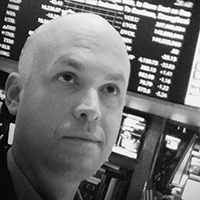With average list price for resale tickets to Super Bowl XLIX now above $10,000, the 2015 Super Bowl between the Seattle Seahawks and New England Patriots is the ticket market’s Black Swan, and one that will leave a lot of fans out in the cold—and without tickets they believed they bought weeks or months in advance—in warm Arizona. Average price is double the previous highest average for a U.S. sporting event and makes Super Bowl 49 the most expensive ticket in history.
The concept of a Black Swan was coined by Nassim Nicholas Taleb in his 2001 book Fooled By Randomness, and he describes the phenomenon like this: ‘hard-to-predict and rare events beyond the realm of normal expectations.’ In his book, Taleb says swans come as a surprise, have a major impact and are rationalized in hindsight as if it could have been expected. This year’s Super Bowl fits all of those characteristics, and like the 2008 market-based Black Swan, it brings with a necessity for more regulation from the game’s governing body, the NFL.
I say this, too, as the CEO of an online ticket site, TiqIQ.
Two days after the conference championship game, the cheapest ticket for Super Bowl XLIX was going for under $2,000. That same cheapest ticket—also known as the “get-in price”—is now going $9,600. While good old-fashioned demand played a role in this year’s run-up, like 2008, the 2015 Super Bowl dynamic was driven principally by derivative-based speculators looking to make a quick buck.
In 2008, speculators were making money on the housing market via Collateralized Debt Obligations. Investors like John Paulson, who shorted the housing market through these CDOs, made billions. In the 2015 Super Bowl ticket market, short selling has again played a major role, but this time around, anyone that shorted the market is now looking at losses of as much as $8,000 for each ticket.
In ticketing, short selling works like this: A speculator offers to sell a ticket they do not own, for a price above where he thinks the market will ultimately end up. At the time of the sale, this may seem like a good deal. Following the normal ticket market demand curve, as the event gets closer, prices drop.
When that happens, the “spec” buys a ticket, ideally below the price at which they originally sold it. For last year’s Super Bowl in New York, the cheapest ticket on game-day was going for around $1,500. If the same pattern held this year, a spec seller who sold their ticket for $2,000 after the conference championship would pocket $500 and a 33% return for their week’s worth of work.
With the cheapest pair to the 2015 game now going for $10,000, those same sellers are now looking at losses of up to $8,000—for each ticket. The result of this short-selling has been a week-long scramble by underwater brokers looking to fill orders at the best price available. Many of those orders got placed between brokers. This means the average fan doesn’t ever see those deals in the marketplace.
Instead, fans tracking the market are seeing prices double in 24 hours.
The first time the U.S. ticket market crossed the $5,000 average mark was in 2011 for the BCS National Championship between Auburn and Oregon. That game also took place at University of Phoenix Stadium, and like this year, short selling played a big part in the elevated price levels. That year, however, tickets dropped as low as $3,000 on game-day.
Despite that drop, many brokers went out of business filling their short orders, and some others even walked away from their orders, leaving fans to fend for themselves in Arizona without the ticket they thought they had. While a $3,000 ticket to sit in the upper rows certainly smarted for anyone who had to pay that price in 2011, this year that would seem like the steal of the century.
In 2008, the Federal Reserve stepped in to back stop the economy and set up a series of regulations aimed at limiting the possibility of another black swan event. So far so good.
With the arrival of $10,000 tickets, now something has to be done to protect consumers in situations like this. As a lawsuit filed last year makes clear, less than 2 percent of Super Bowl tickets actually become available to the general public. The NFL controls who gets the rest, with the two participating teams getting 17.5 percent, the host team getting 5 percent and each NFL team getting 1.2 percent each.
That way, the NFL dictates when and to whom tickets are made available. Unlike most events, the Super Bowl does not allow for e-tickets, so tracking and accountability is entirely within control of the NFL. While the league may not want to interfere with the “free-market”—which, without regulation, has been stomped all over—they could simply ban speculative selling for the Super Bowl (or any other NFL event) and impose a lifetime NFL ticket ban for anyone who sells spec tickets.
The cheapest face value ticket for this year’s Super Bowl was $1,200, which is $8,000 less than what you can get now on the secondary market. With nothing particularly different about the match-up, the participants or the location, those kinds of numbers suggest that the market is rigged.
The market is being manipulated to the extreme by those who have paid teams and the league for access.
While those with access won financially this year, they’ve done so at the expense of the fan, their own integrity, and the consumer’s trust in the ticket market. For Super Bowl 50 in San Francisco, the NFL needs to have a fix in place to ensure 2015 never happens again.
If X doesn’t learn from the lessons of this year, it will be another strike against a league that seems intent on alienating fans and erasing the brand equity they’ve built over the first 49 years of Super Bowl history





